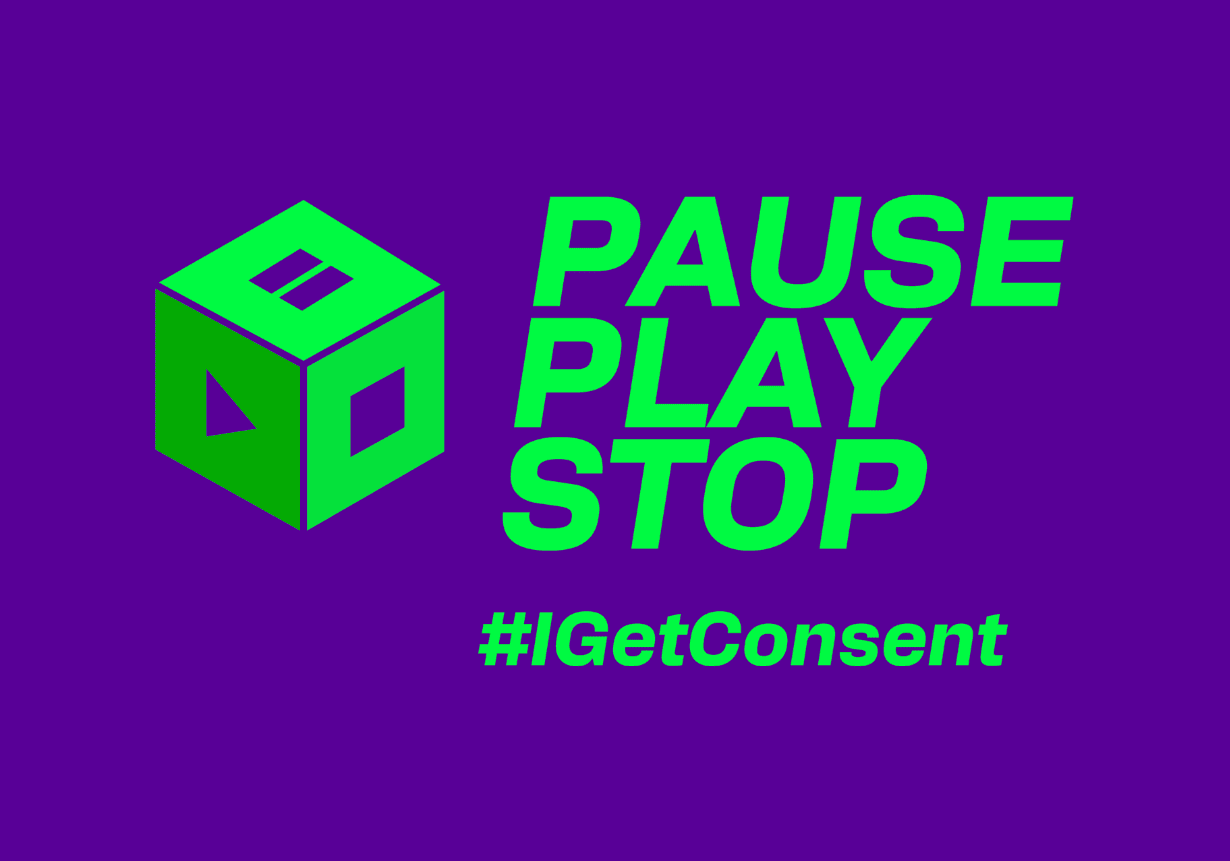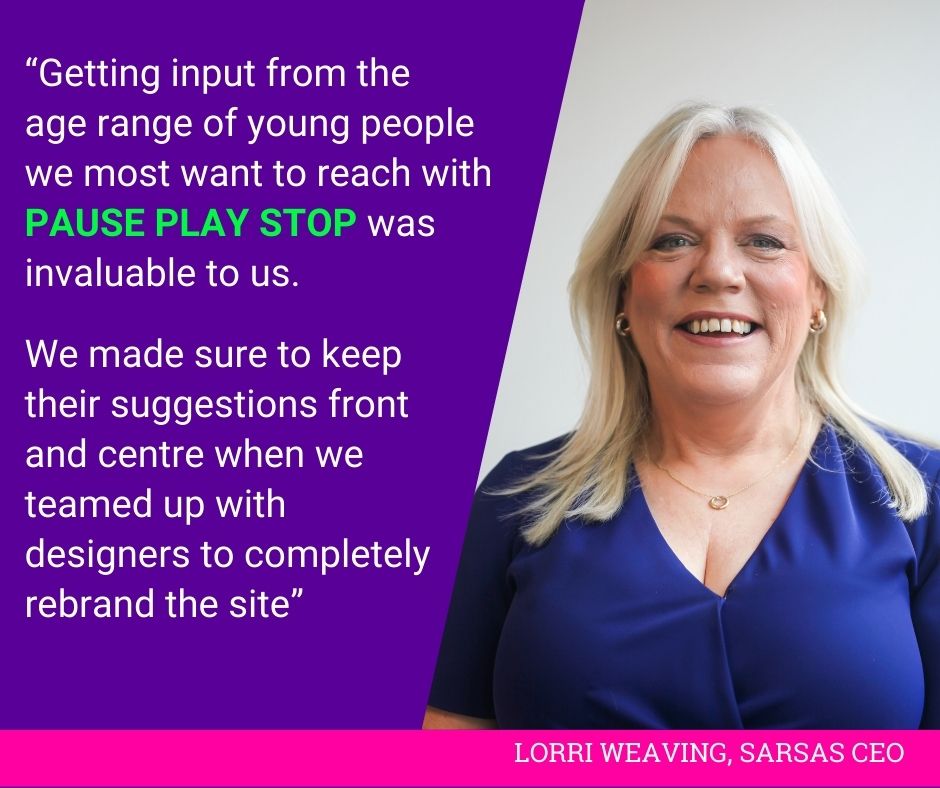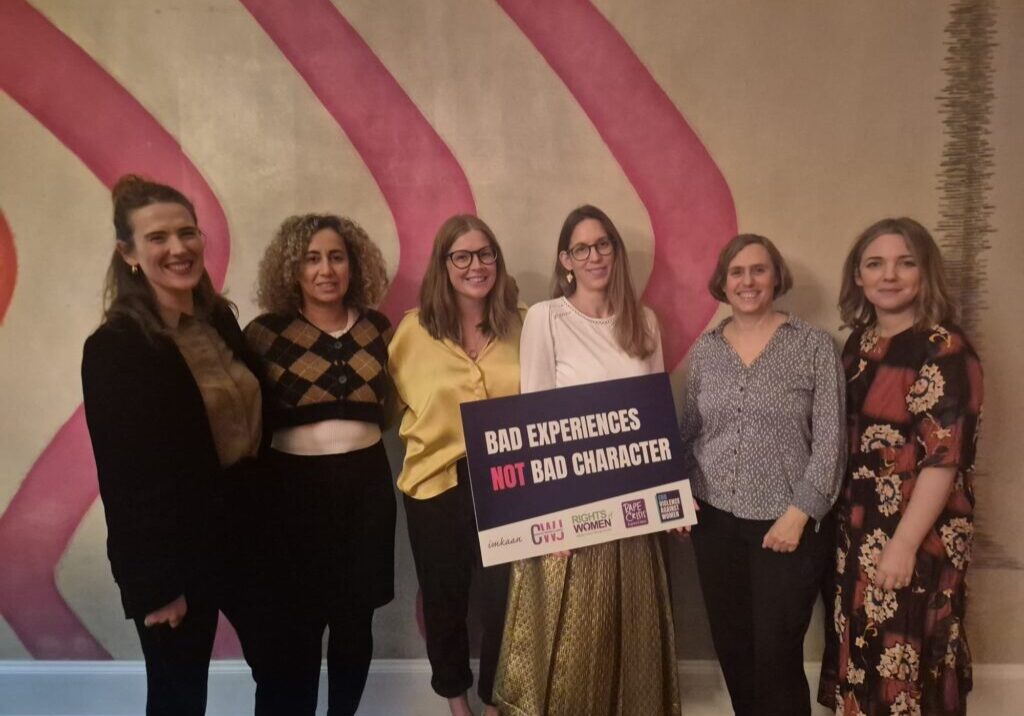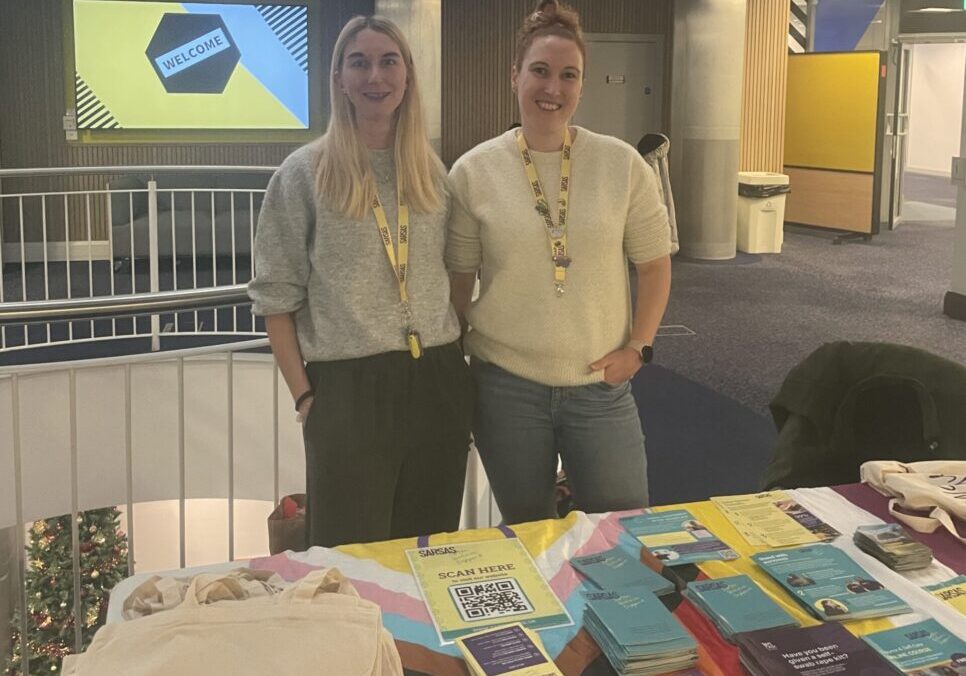
We’ve relaunched our online consent website for teens!
Navigating the world of sex and consent can feel overwhelming, especially for young people. That’s why we’re excited to relaunch PAUSE PLAY STOP – a free, easy-to-use online tool designed to help students aged 13+ feel more confident and in control when it comes to sex and consent.
PAUSE PLAY STOP is all about helping young people feel prepared and empowered. As students explore the site, they’ll find practical tools and resources aimed at making the concept of consent clearer and more accessible.
The campaign first launched back in 2015 as a direct response to questions and worries we heard again and again from callers using our helpline. But a lot has changed since then. The way we talk and teach about consent is always evolving, so, last year, we worked with a focus group of young people who gave us feedback.
The feedback was clear: teens wanted brighter colours, catchier language, and bite-sized info. They also asked for more facts about consent, and relatable examples, like how to stay safe online and deal with sexting.
Spark conversations in the classroom
PAUSE PLAY STOP is versatile, making it a perfect tool for teachers and support staff to use in the classroom as part of relationship and sex education (RSE) lessons. But it’s also designed for young people to explore on their own, at their own pace.
As students explorre the site, they’ll discover:
Test your consent knowledge
One of the most engaging features of PAUSE PLAY STOP is the interactive consent quiz. It presents five different real-life scenarios where you have to decide whether to ‘pause,’ ‘play,’ or ‘stop.’ The scenarios are designed to be inclusive, featuring diverse characters of all genders, ages, and sexual orientations. This isn’t just about ticking boxes – it’s about understanding the nuances of consent in a way that feels relatable.
To make these important messages even more engaging, we’ve also created four animation videos. These short clips cover everything from the basics of getting consent to more specific scenarios, like getting consent online. Plus, there are downloadable resources and links to other organisations that can provide support.
At SARSAS, we’re committed to fostering a culture of consent in schools and communities. Our dedicated training team regularly visits schools to deliver workshops and assemblies on consent and healthy relationships. PAUSE PLAY STOP is one of the tools we use to spark discussions among students and help them feel more comfortable talking about these topics.
We provide Consent & Bystander workshops to a range of organisations: schools, colleges, universities, youth groups as well as pupil referral units, housing providers and social workers.
If you’re interested in finding out more, please contact our training team today – training@sarsas.org.uk






